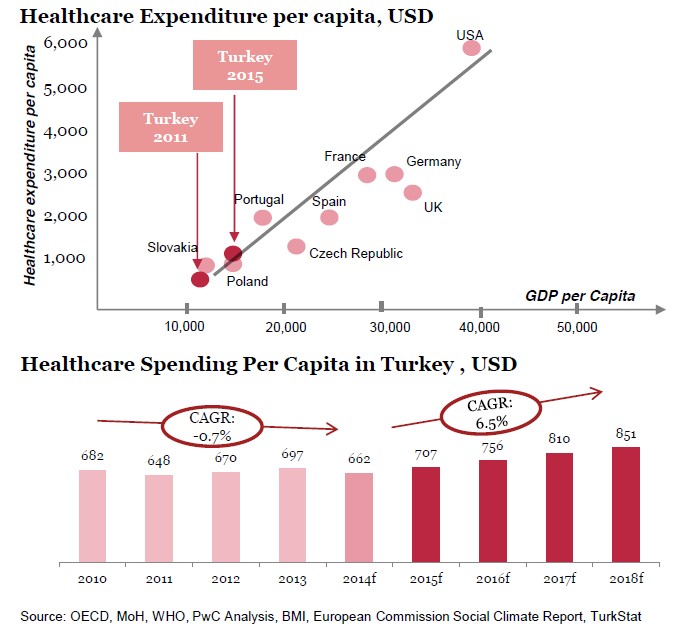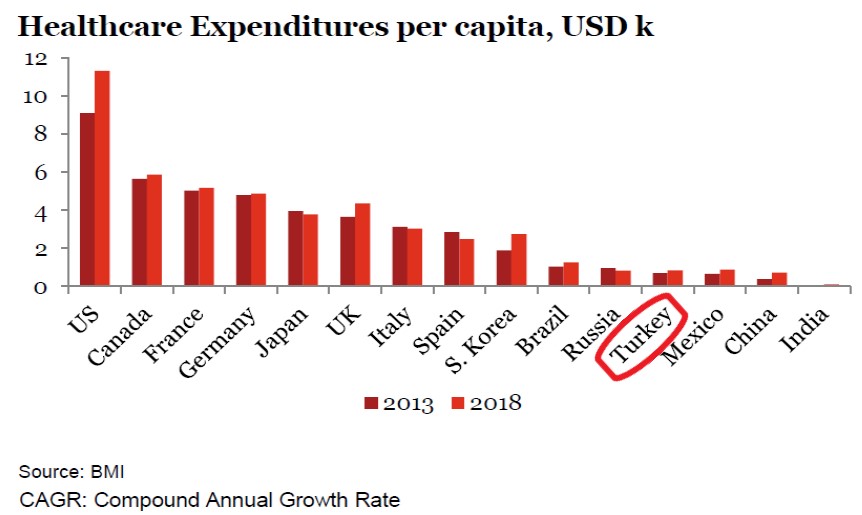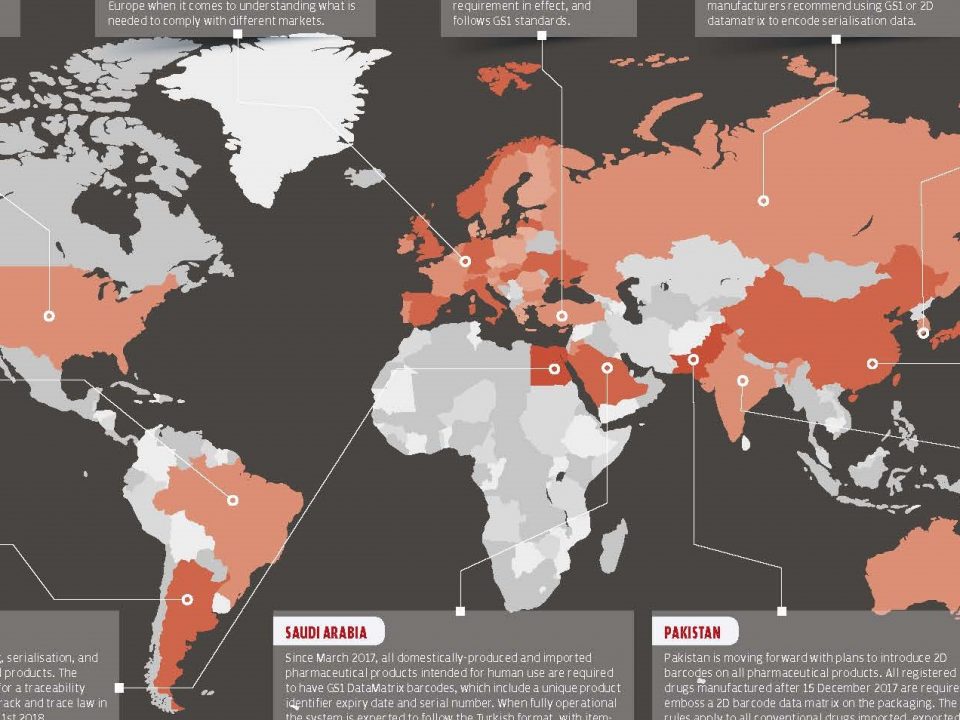
Türkiye’de Sağlık Hizmetleri
4 Eylül 2017
Sahte İlaçlar: Avrupa Birliğindeki Gelişmeler
11 Eylül 2017Healthcare is one of the largest markets in the world, expected to exceed $10 trillion by 2018. All countries are also dealing with problems such as price increases, increasing demand, aging (and more frequently exposed to illnesses) populations.
Even though Turkey is the first country to fully integrate the follow-up monitoring system into health services worldwide, annual expenditure per capita in health services is below average.

Even though Turkey’s health expenditures are below the developed countries, the level of patient satisfaction has increased significantly with the Health Services Exchange Program since 2003. Patient satisfaction in the EU was at the level of 63%, while at 75% in Turkey in 2013 .

Expectations are increase in demand for health services and equipment due to population growth, aging populations, rising per capita income and urbanization, and compound annual growth rate to reach 6.5% at the end of 2018.
Turkey’s health services are covered by the state budget and expenditures have increased significantly over the years. In 2013, 74% of the state’s health care expenditures cover about 53 billion dollars. Compound annual growth rate is expected to be about 7.6% by at the end of 2018.
In 2003, the Health Exchange Program was initiated by the Ministry of Health to move healthcare services to the world quality. With this program launched, Emekli Sandığı, SSK and Bağkur were gathered under a single institution and named Social Security Institution.
The Social Security Institution (SGK) has been structured to cover the basic health needs and services of all Turkish people. With this program SGK offers a comprehensive and standardized basic services such as emergency services, inpatient and outpatient services in a package to all citizens.
Turkey’s health services are truely a universal system. Employees, contributors and non-contributors, all have access to the same providers and benefits package.


